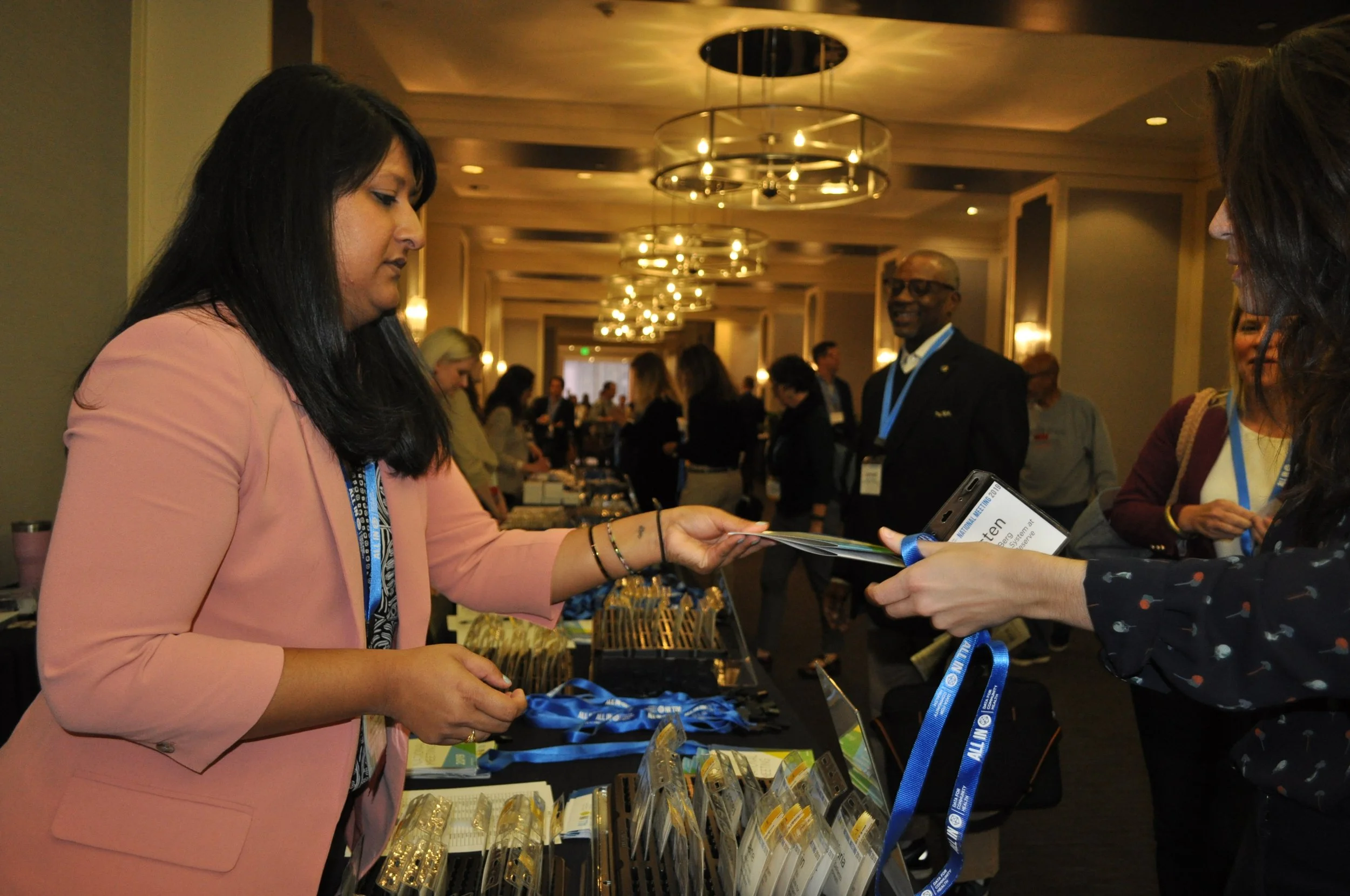All In: Data for Community Health and the Impact It Made
For years, the All In: Data for Community Health network, of which DASH was a founding partner, brought together organizations engaged in building a culture of health through multisector data sharing. All In is sunsetting as a coalition of program offices and a groundbreaking peer learning network, but the skills, lessons, and relationships forged during its active years continue to shine.
This spring, after eight years of helping multisector data-sharing collaborations trade tips, lessons, resources, and challenges, All In: Data for Community Health ended its run. DASH is a founding partner of this network.
All In began in 2016 when DASH and the Community Health Peer Learning Program (CHP) recognized that their separate funders and institutions were working toward the same goal of improving multisector data-sharing infrastructure in pursuit of advancing community health. Programs like DASH and CHP acted as intermediary funders, receiving funds and then regranting those funds to support other projects doing data-sharing work.
At the time, electronic health records were new, and the promise of more efficient and fair data exchange was an exciting impetus to re-imagine what real health equity could look like. There was no roadmap for this work, and DASH and CHP were glad to travel together. The two set out to connect their respective awardees across systems and states with similar or complementary goals.
The two partners were not alone, it turns out. Around the same time, the BUILD Health Challenge was coalescing, the Colorado Health Foundation was preparing a similar program, and the Network for Regional Healthcare Improvement was building an online platform for “Healthdoers” engaged in multisector-data collaborations.
In the context of all this innovation and peer support, during a convening of DASH and CHP awardees, an idea took root: What about a permanent peer learning network for these awarded data-sharing projects, supported by diverse funding programs, offering online and in-person programming? All In was born.
The collaborative efforts of these program partners were supercharged by initiatives brought in by new partners like the Public Health National Center for Innovations, the Population Health Innovation Lab, and New Jersey Health Initiatives, all seeking the spaces where wisdom was in the room for those tackling tough new data challenges. Advisors and thought partners like the Network for Public Health Law, Pew Charitable Trusts, and San Diego 211 pitched in with insights and advice.
More and more, health data was flowing. Community-based organizations were partnering with public health and healthcare systems to make data work in service to thriving communities. By 2019, All In opened a call for abstracts for data-sharing projects to present at the first annual national convening beyond partner-funded initiatives, and as a result All In hosted nearly 400 people in Baltimore that October. Themes included the ethical implications of public data sharing and its impacts on power, vulnerability, accountability, and racial inequality; the importance of centering community voice in data collection, analysis, and response; and conflict in governance of data-sharing initiatives. Plans were announced for a year of affinity groups—meetings on special topics of interest initiated by peers and facilitated by leaders in the field.
Then, in 2020, the COVID pandemic took hold. The pandemic posed immense challenges for health information collection and dissemination. Health agencies and medical professionals didn’t have the data they needed to prepare resources. Communities didn’t have confidence that they were receiving accurate information and advice.
Not everyone in the US faced the same impacts. The coronavirus pandemic laid absolutely bare the nation’s structural racism that had been raging, mostly unabated, for centuries. Generations of inequities across the gamut of medical and non-medical determinants of health had resulted in stark racial disparities in COVID-related illness and deaths.
All In partners, seasoned in working collaboratively, partnering with community members, and using and understanding data across sectors, saw their models take on additional relevance and urgency. In 2020, All In’s National Meeting (virtual, given COVID) offered sessions like “Sharing Data Locally: Partnering with Neighborhoods,” and “Leveraging Public Health Data for Tenant Protections in an Immigrant Community.” Some presenters spoke from their bedrooms, some from the parking lot of their community outreach initiatives, some, masked, from their cubicles or boardrooms. All In participants shared helpful tools and approaches.
In recent years, All In has continued to show up, with program partners finding new ways to support the work and collaborate toward equitable health data systems where everyone had a fair chance to achieve their best health.
And yet, nowadays, the idea of data sharing across sectors is no longer novel. Multisector data sharing has become more widespread—a starting point, not the whole point.
There are other developments. The technology, communications, and policy landscape has changed radically since All In’s start. Not unrelated, information ecosystems are in great flux and trust in public health has eroded.
The national programs that started All In have found themselves focusing their respective areas of expertise on new challenges. Funding for thought partnership has of late been more urgently needed to build power in communities.
Maintaining a meaningful All In network has become increasingly unsustainable—and perhaps the work of this particular coalition is done. Time to make way for new types of coalitions, with different forms and goals. The last All In newsletter went out with a farewell message in May.
All In has sunsetted, but its impact continues to cast light. The relationships forged during the All In years live on. The talks, presentations, frameworks, and more previously housed on the All In website will be transferred to the DASH Knowledge Base (DKB), a publicly accessible repository of resources and projects that will officially launch later this year. The All In newsletter will be relaunched as the DASH newsletter following a short break—newsletter subscribers can look for that in their inbox starting in the fall.
All In participants have told us at DASH how valuable they found the chance to get to know and learn from each other through All In. We, too, have learned so much. We are deeply grateful to all of those who contributed and look forward to staying connected.


